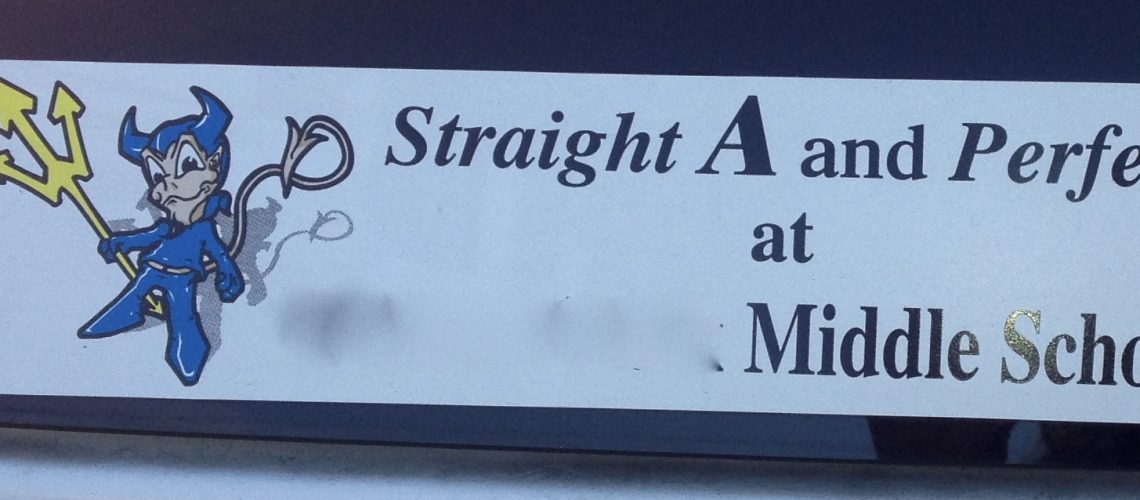Parents, teachers and professionals spend a lot of time thinking about how to encourage kids’ resolve, keep them on track and help them recognize and reach their boundless potential. Two buzzwords in particular, “mindset” and “grit,” are used to discuss these concepts. The big question is how do we get our kids to have a growth mindset and how do we get “grittier” kids?
Mindset, a theory and practice developed by psychologist, Carol Dweck, touts praising the process rather than the product when attempting to encourage one’s strength of character, mettle or determination (Dweck, Carol S., Mindset: the new psychology of success). In a nutshell the mindset concept considers the effects of praise and how it can actually stunt one’s ability to move forward, take risks and face challenges. Dweck’s research involved graduate students giving children increasingly difficult pencil and paper tasks with one group praising the product: “That’s terrific!” “You’re so smart!” “Wow, you can do anything!” and the other group praising the efforts or process: “You really took your time on that one.” “That was tough but I saw you figuring out in your head what you should do next and really thinking about it.”
Reflect for a moment on our gifted and twice exceptional kids’ experience with praise. From the moment they did something extraordinary – whether it was reading at three, comprehending a complex mathematical concept at six or doing something else beyond their age – the adults around them probably exclaimed something like: “You’re so smart!” “That is brilliant!” “Wow, you are much better at that than I am!” Consider the bumper stickers some cars boast “Straight A’s and Perfect at _______ Middle School.” Yeah, no pressure there. For twice exceptional kids – gifted with a learning difference or disability – they experience constant internal mixed messaging let alone the feedback from the outside world. When they do well it is expected; when they struggle not only are their abilities questioned, but their efforts and aspirations as well. So now the worry is two fold – can I perform as expected and can I overcome my learning difference or disability?
In Dweck’s research the kids who were told how smart, how great and how infallible they were, hit a wall and refused to continue as task difficulty increased. The other kids, the ones whose hard work was pointed out to them and appreciated, continued with the tasks for a much longer time. This fortitude, the desire to continue in the face of challenge, is how “grit” is defined.
Angela Duckworth, the psychologist who coined the term “grit,” defines it as “passion and perseverance for very long term goals, stamina, sticking with your future goals day in and day out for years and working very hard to make that future a reality. Living life like it’s a marathon not a sprint.” In her Ted Talk Dr. Duckworth says there is not much research on how to “make your child ‘gritty” and that the best theory she has come across is Dr. Dweck’s mindset work.
I find that these two concepts are particularly relevant when considering gifted and twice exceptional kids. When I present on “The True Meaning of Giftedness and Twice Exceptionality,” I liken giftedness to a three-layer cake with intellect or potential as the “icing on that cake.” The true meaning of giftedness is more complicated than ability, talent or IQ scores. It includes three main characteristics (the layers in our cake); asynchronous development, intensity and perfectionism. Asynchronous development and intensity (or overexcitability in gifted parlance) are important and fascinating considerations, however, the characteristic relevant to grit and mindset in gifted and twice exceptional kids is perfectionism.
Perfectionism can, of course, be a good thing. It can motivate us to do our best work. It may lead us to cross our T’s and dot our I’s. It can cause us to plan in advance making sure everything is “just right.” But it often results in paralysis, an incapability to move forward. The other side of perfectionism is often anxiety. Why is this so? If expectations are set so high that the likelihood of meeting those expectations is greatly diminished, the result is a “why bother trying” attitude. If we are constantly told how great we are and how we always succeed, then a fear of letting others down sets in. That fear spirals into self-doubt and questioning what we’ve been told our whole lives; how smart, great and able we are.
Gifted kids, by the mere fact they are labeled ‘gifted,’ are burdened with enormous expectations and assumptions. When gifted kids experience learning differences or disabilities or suffer from anxiety as a result of an unhealthy level of perfectionism, they work against themselves to become the opposite of what everyone says they are. Deciding that you are not smart, not high ability, not perfect gives one the license to fail and what a relief it is not to have to succeed all the time.
Have you ever heard a teacher or parent refer to a child as “lazy?” When a client shares that information with me, I ask questions about potential unhealthy perfectionism and anxiety. In girls an entire body of research exists on the “imposter theory,” when girls convince themselves that they cannot possibly be as good as everyone tells them they are, so they rebel, stop trying, act out and give up.
But guess what, it is really hard to praise the process. Maybe because we were spoken to this way when we were kids, are still spoken to this way, or maybe because we really are in awe of our kids, students, patients and clients in the moment. It rolls off the tongue, doesn’t it? “You’re so smart!” Who hasn’t said that to someone? The work on mindset and grit are suggesting that we change the way we talk. Words are important, life changing, and demonstrate in real time how we as adults view the world.
This ‘motivational speak’ isn’t easy. It does not come naturally and it requires great observational powers. I was at a lecture recently where a psychiatrist tripped over examples of this. She was modeling how she talks to kids in front of parents and had to correct herself to get it right. Good for her. Trying over and succeeding right in front of us was role modeling grit and growth mindset about teaching our kids grit and growth mindset!
So what does it sound like to talk to kids (or spouses or co-workers) in this way? Praise the process, notice and point out the hard work. Admire the do-overs necessary to get something to a point where it is a job well done. So, for example, “I really like how hard you worked on that.” “I noticed that you needed to think about that – I admire how you took your time.” “Wow! That was a real challenge for you. I saw how you paused and thought about your next step.”
I advise clients to role model their own challenges in front of their perfectionistic kids: “Man, I totally messed up today – I’m so glad I’m on the other side of that experience because now I know next time I’ll handle that differently.” “Let’s take a look at where things got rough and see if we can learn something from it.” “Boy did I have a tough time with that. It took me forever to figure that out.” Or the proverbial “Today I made lemonade out of lemons! Let me tell you how.”
There’s a great video of basketball legend Michael Jordan crediting his success to his many failures and how he could not have succeeded without them. “I failed over and over and over again in my life, and that is why I succeed.” says Jordan. Watch the video with your kids: Fail to Succeed Video.
So what’s the answer? Celebrate and encourage challenge. Let them take courses where they might earn something other than an “A.” Allow your kids to fail so they can succeed. Ask your kids “what’s the worst thing that can happen?” early on in their intellectual risk taking. Teachers, point out how fabulous it is that a child is working hard to learn something. Congratulate and thank the student whose mistakes allowed him and his fellow students to learn.
Two wonderful books addressing how parental fears can work against growing independence and grit in our kids are Blessing of a Skinned Knee and Blessing of a B Minus by Wendy Mogel. Mogel makes the point that parental need for their children to succeed, works against the ability to actually develop the skills and mindset needed for long term success. Just as backing off fosters independence, allowing kids to experience and learn from failure allows them to develop their own sense of determination.
Bottom line, to foster grit and encourage a growth mindset, focus on the efforts, the journey, the how rather than the end result or the what. Missed shots along the way are necessary in order to make that slam-dunk.

Author: Julie F. Skolnick M.A., J.D.
Julie Skolnick, M.A., J.D., is the Founder of With Understanding Comes Calm, LLC, through which she passionately guides parents of gifted and distractible children, mentors 2e adults, and collaborates with and advises educators and professionals on bringing out the best and raising self-confidence in their students and clients.


One Response
Hello Dr. Skolnick!
I am currently a teacher who is going back to get my Masters Degree in Gifted and Talented Education at Arizona State University. I really enjoyed reading your article on the concepts of “mindset” and “grit” when discussing gifted students. Right now, I am writing a literature review on how professional development can positively effect teachers in the classroom. My question to you is that do you think that teachers who work with the gifted population of students should have the same “mindset” and “grit” when learning how to teach them? I am finding that research is very limited when it comes to the effect of professional development on teachers because professional development revolving around gifted education does not occur all that often. I would be interested to know your thoughts on why this is and if you think this is detrimental to teaching gifted students.